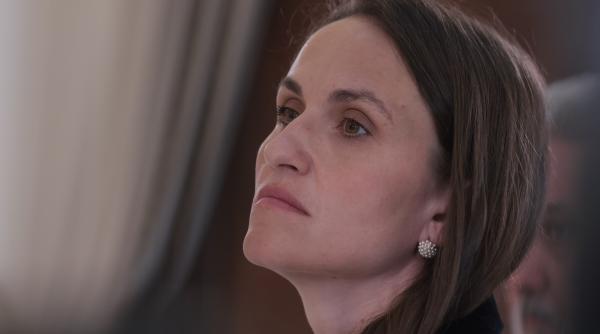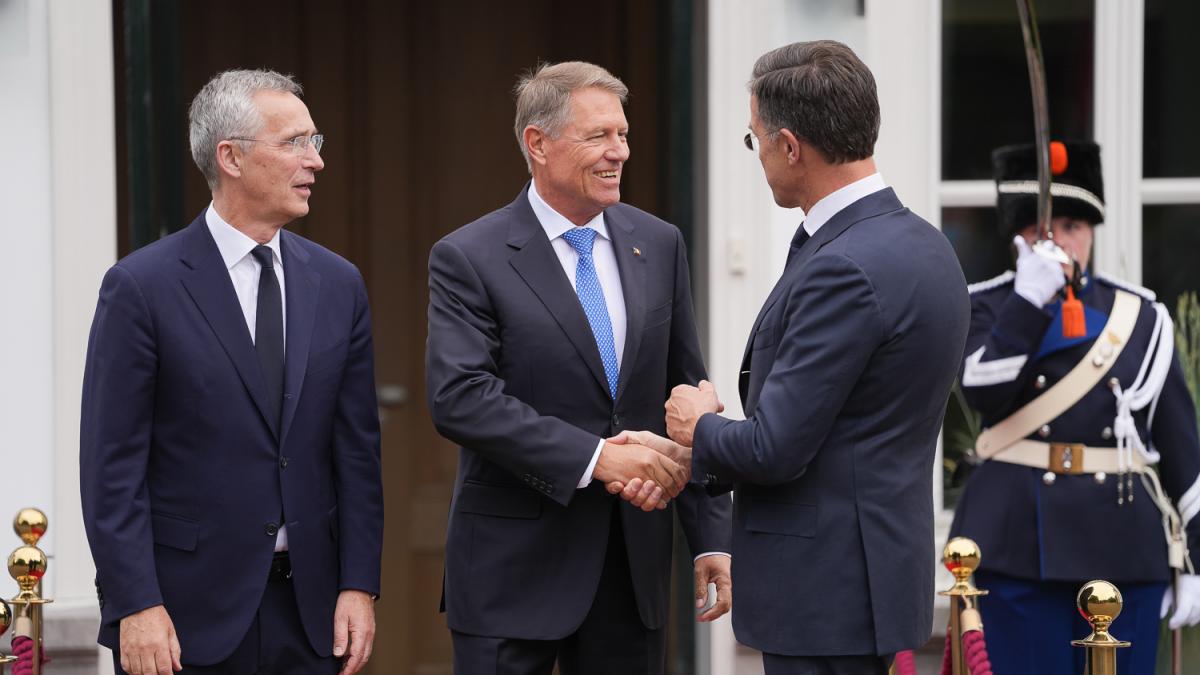
€ 5.0941 →
|
$ 4.3046 →
|
 Jens Stoltenberg, secretar general al NATO, președintele român Klaus Iohannis și premierul olandez Mark Rutte. Foto: Administrația Prezidențială a României
Jens Stoltenberg, secretar general al NATO, președintele român Klaus Iohannis și premierul olandez Mark Rutte. Foto: Administrația Prezidențială a României
His Excellency Adrian Zuckerman, former US Ambassador to Romania, wrote an editorial for DefenseRomania in the context of the election of the next NATO Secretary General between Romanian President Klaus Iohannis and Dutch Prime Minister Mark Rutte:
NATO Secretary General Jens Stoltenberg will be retiring in September just as Europe and NATO are facing some of their biggest challenges since the Second World War. He has been a strong voice in favor of countering the Russian threat.
The next NATO leader should be in the same mold. Of the two leading candidates to replace Stoltenberg, Romania’s Iohannis and Holland’s Rutte, Iohannis is the better choice.
Russia’s invasion of Ukraine and its military threats against other neighbors, including NATO members, have created a dangerous security environment in Europe. Meanwhile, European countries have failed to reach true consensus on how to deal with an expansionist Russia.
Romania’s Klaus Iohannis understands the military and hybrid threats from Russia and the strategic importance of the Black Sea. He has led a country that, along with Poland, has been the staunch mainstay of NATO’s frontline eastern flank defenses over the past twenty years.
During his tenure, Romania has always fulfilled its NATO pledge of spending at least 2% of gross domestic product on its defense and Romanian troops have participated in NATO deployments in Afghanistan and Kosovo.
President Iohannis, along with President Duda of Poland, created the B9 group on November 4, 2015, in response to Russia’ annexation of Crimea. The other members of the B9 group are Bulgaria, Czech Republic, Estonia, Hungary, Latvia, and Lithuania. The B9 unequivocally condemned Russia’s invasion of Ukraine and its targeting of civilians. It has advocated a stronger allied military presence on Europe’s eastern flank and defending every inch of every NATO country against Russian invasion. The group also supported the admission of Finland and Sweden to the alliance.
He has also been a leader in the Three Seas Initiative, an economic project involving countries between the Black Sea, the Baltic Sea, and the Adriatic that want to reduce their dependence from Russia.
It is critically important that the supreme NATO leader likes the United States and has a proven ability to work with U.S. leaders. President Iohannis was the only world leader to visit the White House twice during the Trump administration.
Mark Rutte was Dutch Prime Minister between 2010 and 2024. Under his leadership, the Netherlands’s defense spending was only about 1% of GDP until it recently crept up towards 1.5%. Alaska’s Senator Dan Sullivan recently stated that Mr. Rutte should be disqualified from NATO’s highest job due to the Netherlands poor track record on defense spending.
The Netherlands under Mr. Rutte’s leadership spent tens of billions of Euros on misguided climate change undertakings and planned to accelerate that spending before his government collapsed several months ago. Many have argued that European countries’ diverting national budgets to spending on ineffectual green energy projects rather than national defense was one of the factors that emboldened Putin in invading Ukraine. Putin hoped to blackmail the European countries with oil and gas restrictions so they would not oppose the invasion.
Prime Minister Rutte is being perceived as a divisive figure in Eastern Europe. He prevented Romania, Bulgaria, and Croatia from joining the Schengen Agreement that abolishes border checks among the signatory countries. As a result, truck and rail traffic from these countries to the rest of Europe were delayed for days. The cost increases resulting from the delays made their products less attractive and prevented the development of ports in Romania and Bulgaria which would have competed with the Dutch port in Rotterdam.
NATO needs a leader who has faced Russian threats, both military and hybrid, understands the strategic importance of the Black Sea, and the frontline eastern flank of Europe. Most importantly, he must be able to unite the member states in policies that benefit all member states.
President Iohannis has a demonstrated track record and expertise in doing exactly this.
Adrian Zuckerman was U.S. Ambassador to Romania between 2019 and 2021
Fiți la curent cu ultimele noutăți. Urmăriți DCNews și pe Google News

 Rodica Mitu nu avea impulsul de a merge, dar a avut impulsul de a trăi. 31 ianuarie, o zi a oftatului în culori: Trei ani fără colega noastră de la DC News
Rodica Mitu nu avea impulsul de a merge, dar a avut impulsul de a trăi. 31 ianuarie, o zi a oftatului în culori: Trei ani fără colega noastră de la DC News
de Anca Murgoci